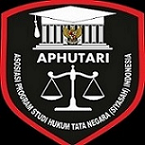Hukuman Kebiri Bagi Kejahatan Pedophilia
Abstract
Pedophilia is a form of sexual violence against children. This crime is an extraordinary crime because it violates the honor and threatens the life of the child as the successor of the nation's ideals. Various efforts have been made by the government to provide protection for children, from increasing penalties and fines to stipulating chemical castration as a sanction for action. In jinayah fiqh itself, castration as a criminal sanction is not known in Islamic law, so it raises a lot of pros and cons in various circles of society, especially scholars regarding the emergence of castration punishment in criminal sanctions for child protection. The formulation of the problem from this research is what are the dimensions of fiqh jinayah in the Law Number 17 of 2016 concerning the castration penalty for pedophilia crimes. The purpose of this study is to determine the dimensions of fiqh jinayah in the RI Law Number 17 of 2016 concerning the castration penalty for pedophilia crimes. Furthermore, the type of research used is the type of empirical normative research, using a conceptual approach. The results obtained, that in the determination of castration for the crime of pedophilia in the Law Number 17 of 2016 there are dimensions of fiqh jinayah which are viewed from the perspective of maqashid al-syariah and maslahah al-mursalah. In the castration punishment in the perspective of maqashid al-syariah, there is a goal of passing down the shari'a that is oriented towards the maintenance of al-kulliyat al-khamsah, namely hifz ad-din, hifz an-nafs, hifz al-'aql, hifz an-nasb and hifz al-mal, In addition to maqashidal-syariah, there is also benefit as God's goal in lowering the Shari'a, namely maslahah al-mursalah, the form of the existence of maslahah in castration punishment in the form of jalb al-manafi and dar al-mafasid at the al-hajiyyat (secondary) level. With the fulfillment of the fiqh dimensions of jinayah in the castration punishment, it shows the purpose and spirit of Islam in legal legislation, because it contains the maintenance of maqashid al-khamsah and also benefits.
Keywords
Full Text:
PDFReferences
a. Sumber Buku Asmawi, Mohammad, Lika-Liku Seks Menyimpang Bagimana Solusinya, Yokyakarta : Darussalam Offset, 2005. Al-Syathibi, Abu Ishaq, Al-Muwafaqat Fi Ushuli Al-Syari’ah, Jilid II, Beirut: Dar Al-Kutub Al Islamiyah, 2003. Az-Zuhaili, Wahbah, Fiqh Islam Wa Adilatuhu, Jilid 7, Jakarta: Gema Insani, 2011. Razak, H.A, Dan H. Rais Lathief, Terjemahan Hadis Shahih Muslim, Jilid II, Jakarta: Pustaka Al-Husna, 1988. Shiddiq, Saipudin, Ushul Fiqh, Jakarta : Kencana, 2011. b. Sumber jurnal Ahmatnijar. “Hukum Islam Fungsional Di Tengah Perubahan Sosial.” Jurnal El-Qanuniy: Jurnal Ilmu-Ilmu Kesyariahan Dan Pranata Sosial 5, No. 1 (2019). Harahap, Zul Anwar Ajim. “Eksistensi Maqashid Al-Syari’ah Dalam Pembaruan Hukum Pidana Di Indonesia.” Istinbáth Jurnal of Islamic Law/Jurnal Hukum Islam 16, No. 1 (2017). Rasyid, Arbanur. “Kesaksian Dalam Perspektif Hukum Islam.” Jurnal El-Qanuniy: Jurnal Ilmu-Ilmu Kesyariahan Dan Pranata Sosial 6, No. 1 (2020). Sainul, Ahmad. “Konsep Hak Milik Dalam Islam.” Jurnal Al-Maqasid: Jurnal Ilmu Kesyariahan Dan Keperdataan 6, No. 2 (2020). Siregar, Fatahuddin Aziz. “Langkah-Langkah Mengetahui Maqasid Asy-Syari’ah.” Jurnal AL-MAQASID: Jurnal Ilmu Kesyariahan Dan Keperdataan 4, No. 1 (2018). Siregar, Sawaluddin. “Munasabat Al-Qur’an Perspektif Burhanuddin Al-Biqai.” Yurisprudentia: Jurnal Hukum Ekonomi 4, No. 1 (2018). Siregar, Syapar Alim. “Keringanan Dalam Hukum Islam.” Jurnal El-Qanuny 5, No. 2 (July 2019). Gunawan, Hendra. “Penerapan Hukuman Ta’zir Di Indonesia (Suatu Analisis Terhadap Penerapan Hukuman Di Lapas Kota Padangsidimpuan).” FITRAH Jurnal Kajian Ilmu-Ilmu Keislaman 4, No. 2 (2018).
DOI: https://doi.org/10.24952/el-thawalib.v2i3.3989
Refbacks
- There are currently no refbacks.









Editorial Office Board :
Kampus UIN Syekh Ali Hasan Ahmad Addary Padangsidimpuan
Jl. T Rizal Nurdin No.Km 4, RW.5, Sihitang, Padangsidimpuan Tenggara, Kota Padang Sidempuan, Sumatera Utara 22733
 Jurnal El-Thawalib is licensed under a Creative Commons Attribution-ShareAlike 4.0 International License.
Jurnal El-Thawalib is licensed under a Creative Commons Attribution-ShareAlike 4.0 International License.
View My Stats






